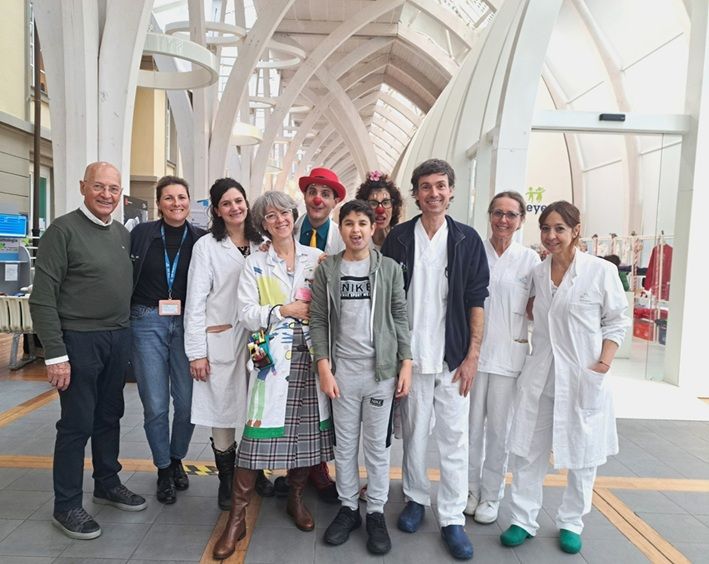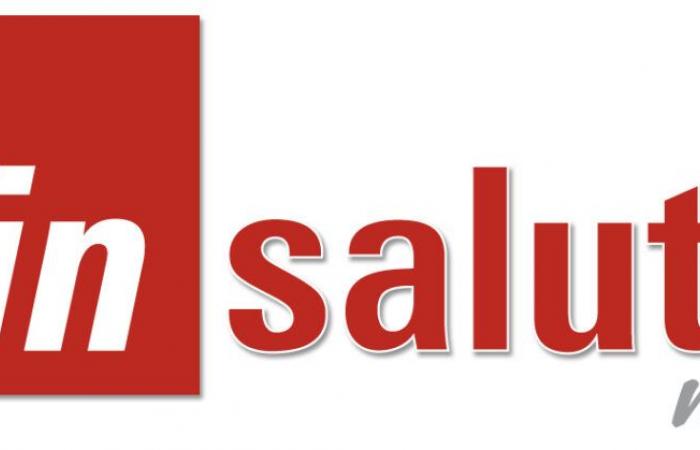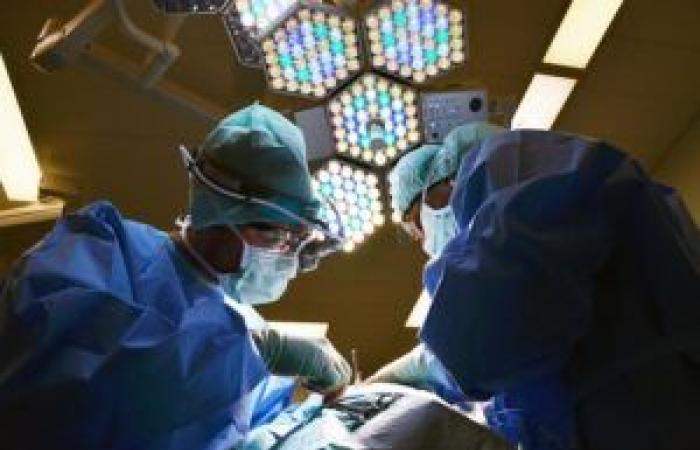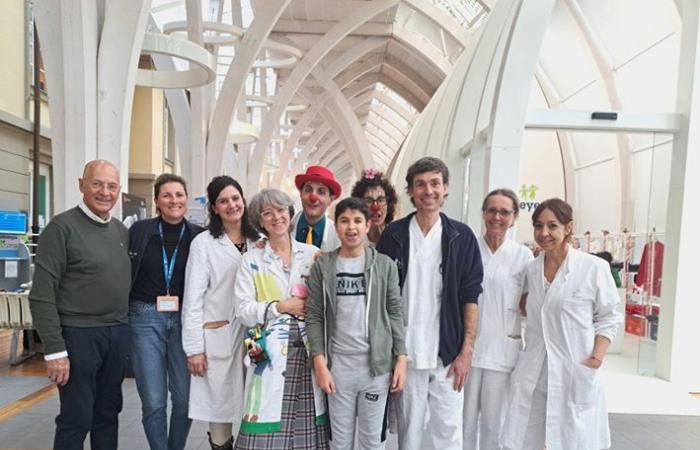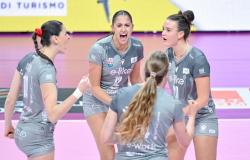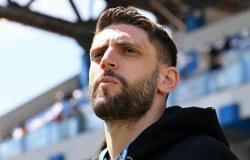After long treatments and several highly advanced surgeries, he can close his mouth, speak and eat like everyone else and has returned home. With great commitment, he even learned to read, write and play the piano, thanks to the “Hospital School” and the support of many people from the “Meyer world”
Florence, 23 December 2024 – When Hussein arrived at Meyer he could neither speak nor eat normally: an extensive venous malformation of the oral cavity, cheek, tongue and lower lip also prevented him from being able to close his mouth. Today, after 3 surgeries and over a year of treatment, Hussein, 12 years old, together with his mother returned home to Iraq, where he found his little sister, brother and father waiting for him. He has a new face and can now talk and eat like all his peers. Not only that: in this year of treatment, thanks to the school in the hospital, he also learned to read and write and, accompanied by many people from Meyer, he discovered a whole new world.
Malformation and interventions
Having arrived in Italy from Iraq through Emergenza Sorrisi Onlus, Hussein was immediately taken care of at Meyer by the team of surgeons led by Flavio Facchini, pediatric reconstructive plastic surgeon. The interventions to resolve the malformation were very complex. First, Meyer's bronchoscopists, under the guidance of Dr. Roberto Baggi, had to perform a tracheotomy, which was necessary to safely face the subsequent phases. Therefore, in collaboration with Careggi, under the guidance of Dr. Nicola Limbucci, head of Neurovascular Interventions at the AOUC, repeated sclero-embolizations were carried out, i.e. treatments aimed at “drying” the lesion from the inside through the administration of a chemotherapy drug. We therefore proceeded with surgical interventions to reduce the lip and completely reconstruct the tongue, using highly advanced techniques for correcting vascular anomalies, in tandem with the Meyer neurosurgeons led by Dr. Lorenzo Genitori.
The surgical treatments were characterized by the use of a special suturing technique which allowed the vessels to be closed upstream of the tissues to be removed, significantly reducing the risk of haemorrhages. Finally, a few days ago, the tracheotomy hole was also surgically closed: for Hussein this was the end of a long journey, which he celebrated with a video call to his distant family: “Finished!”, he said to his little sister who was watching him from the phone.
A choral story
But it doesn't end here: Hussein's story is that of an entire hospital that rallied around him. Together with doctors and nurses, the hospital psychology service played a very important role, following him and his mother from the beginning of the delicate process of accepting treatment: both had an extraordinary ability to adapt to the context and culture several in which they found themselves immersed.
Attending hospital school was also decisive for him: followed by teacher Susy, Hussein, with great tenacity, became familiar with the “Meyer world” and little by little he learned to write, read, count and became even successfully launched into learning the piano. He built puppets, thus learning to represent himself, and began to express his emotions by drawing and painting.
Especially in the most difficult moments he found the Meyer hospital clowns at his side ready to make him laugh, together with all the other reception services supported by the Meyer Foundation. Thanks to the hospital's social assistance service, he and his mother, during these months in which long hospitalizations were alternated with periodic check-ups, were welcomed into the Meyer hospitality network at Casa Don Lelio, followed with loved by everyone.
Upstream, the cultural mediation service made it possible to overcome the language barrier and ensure that Hussein could approach all this with less fear and a lot of confidence, the same that now shines in his new smile.
